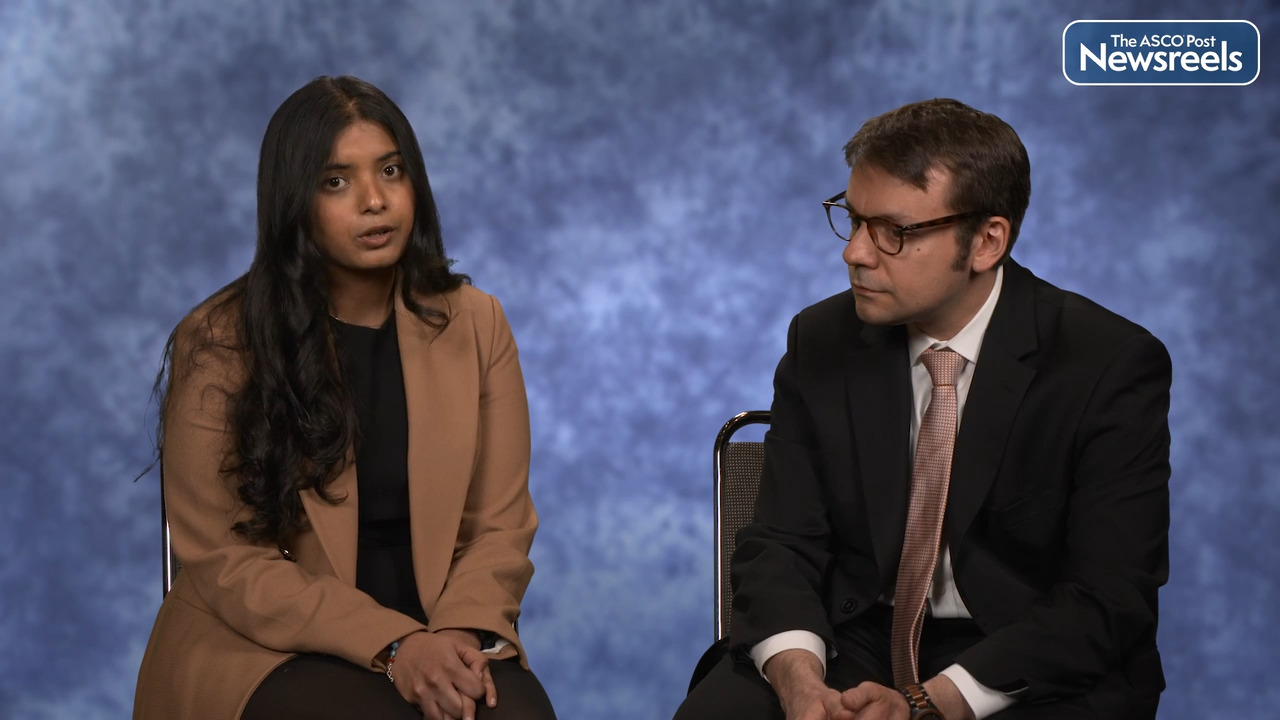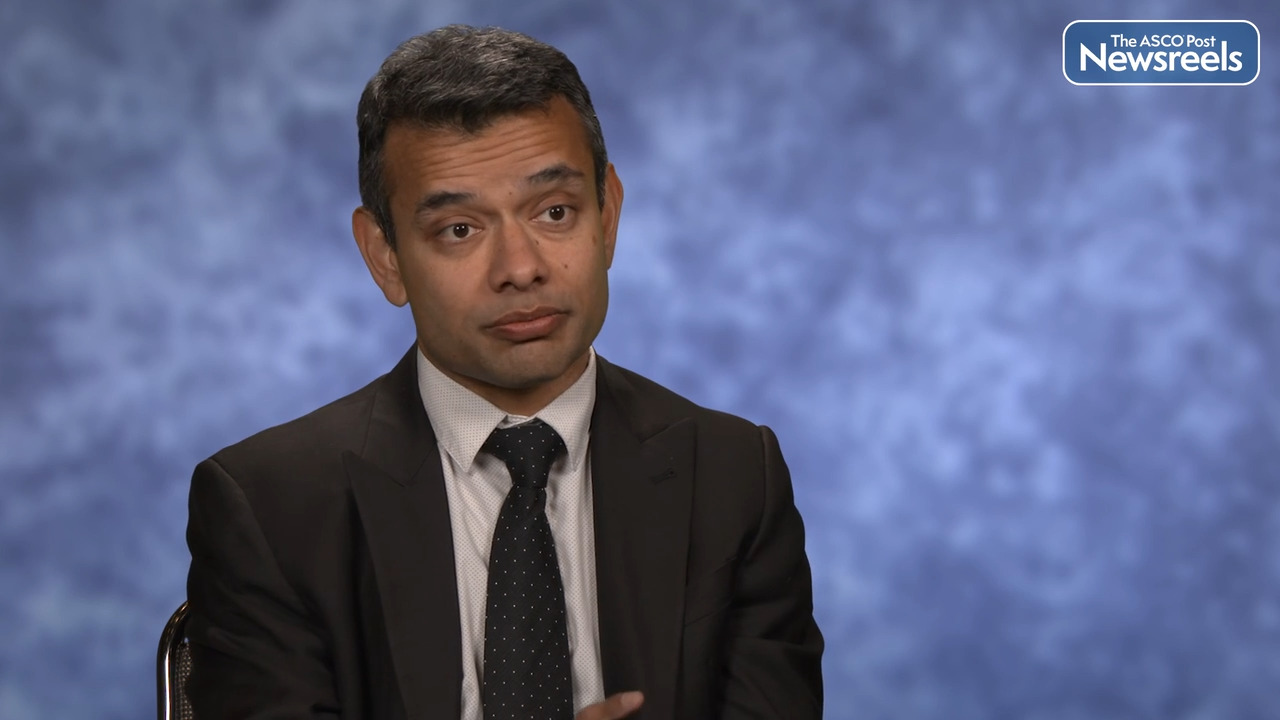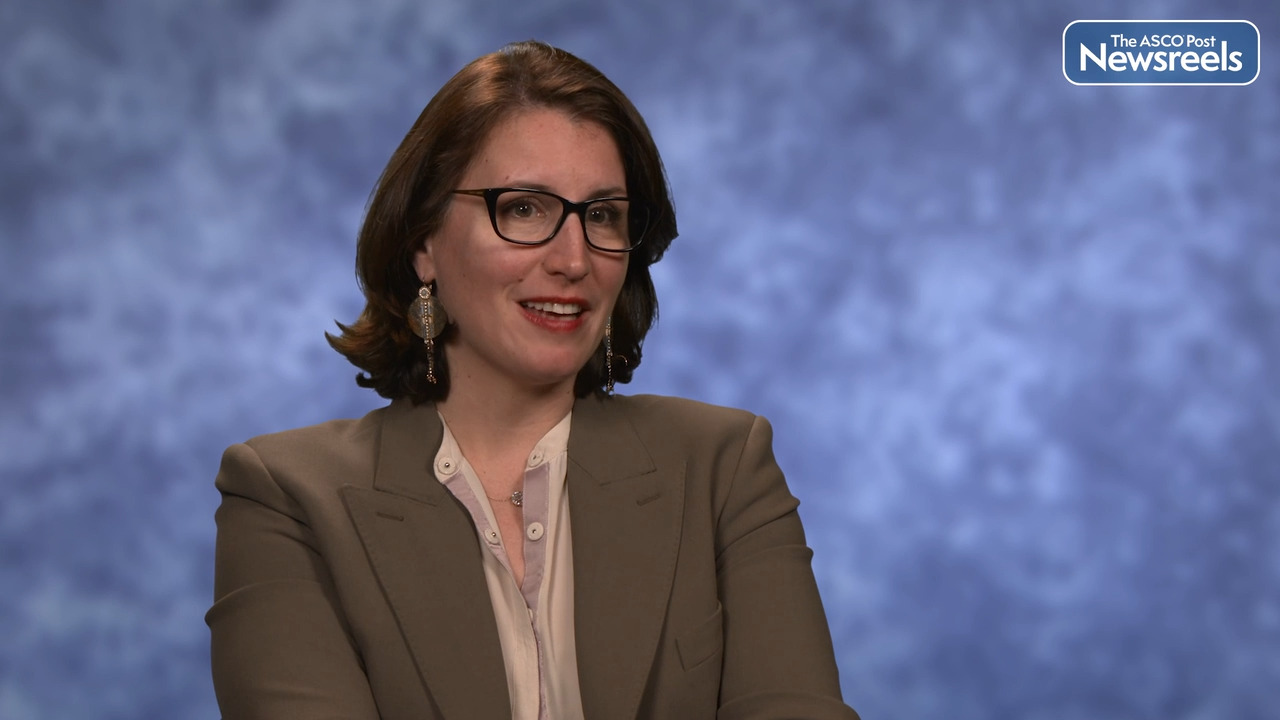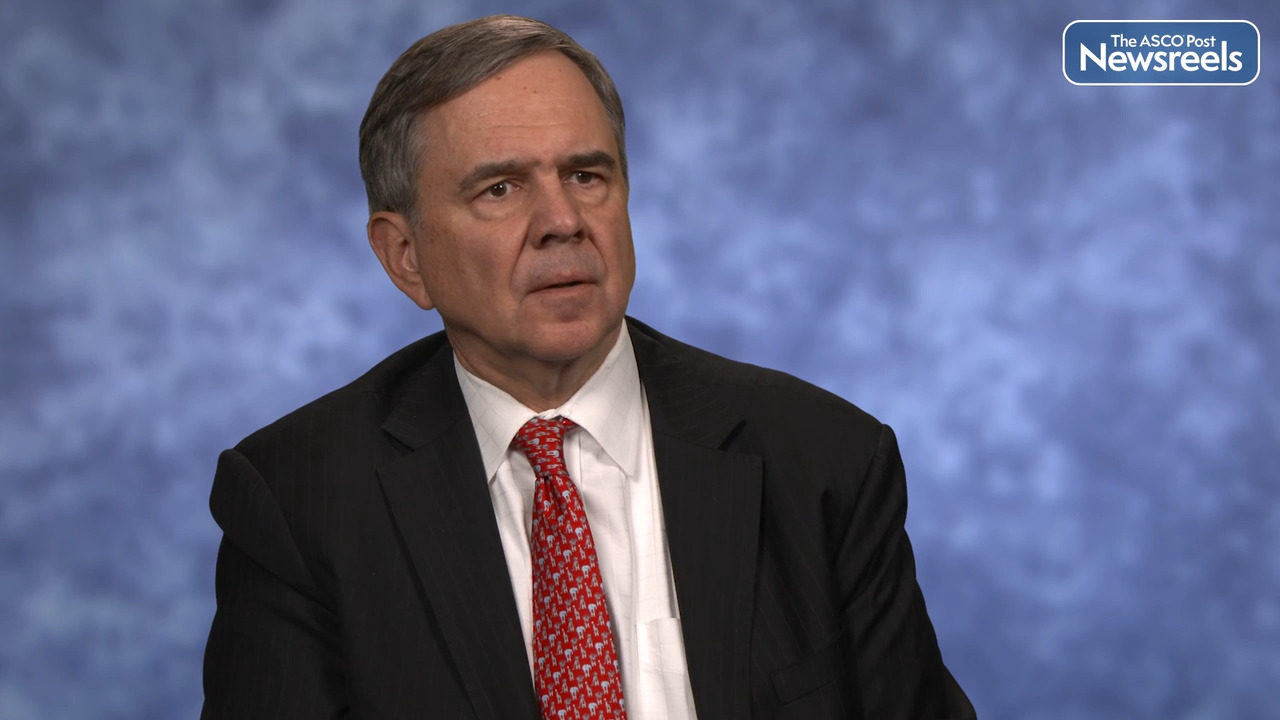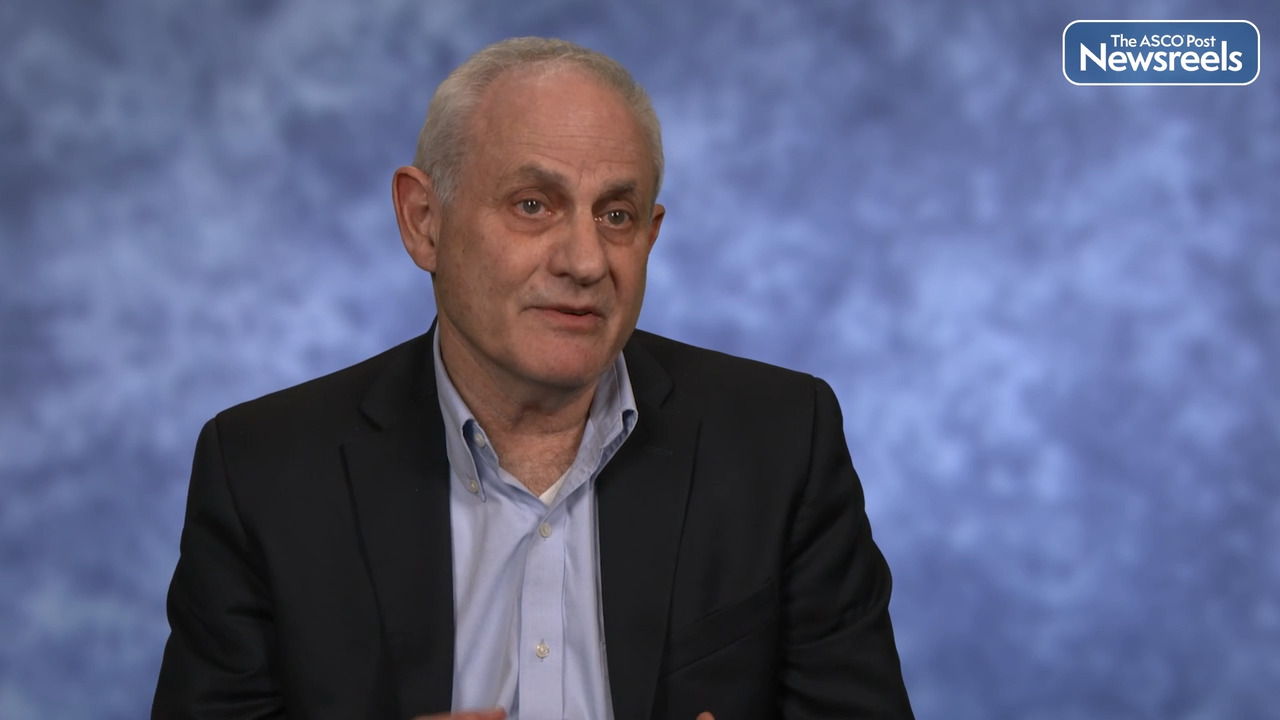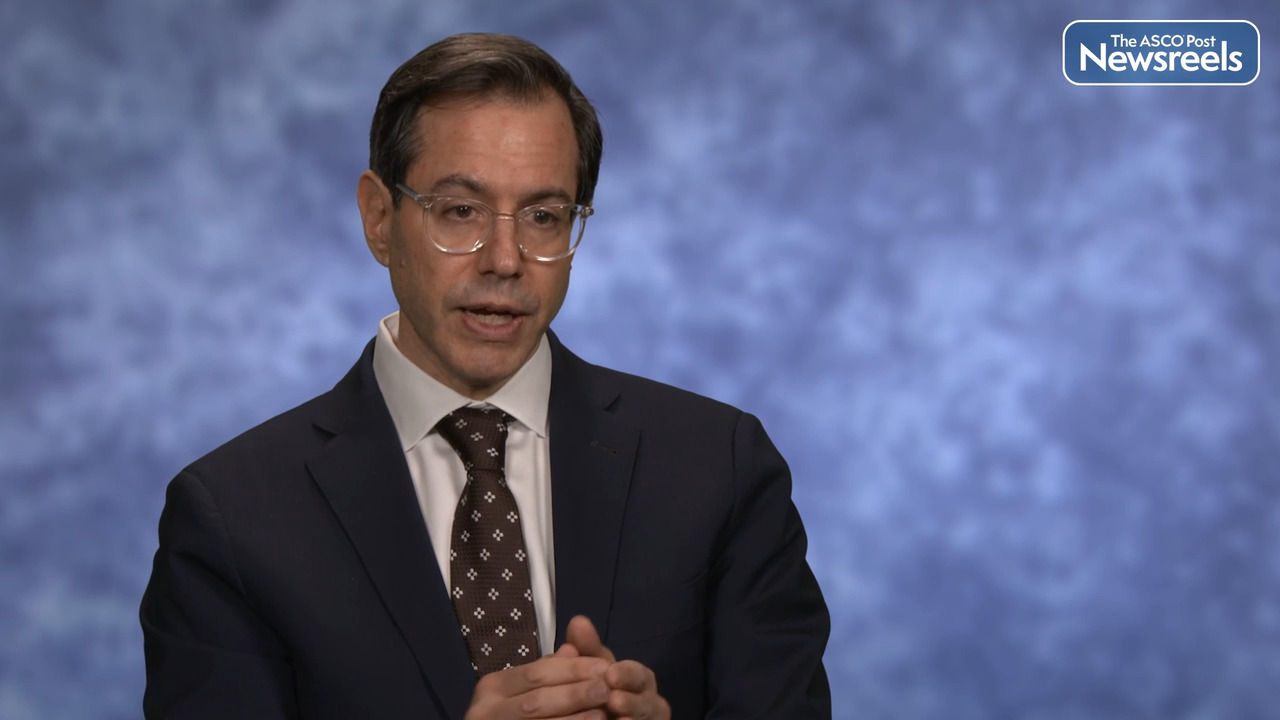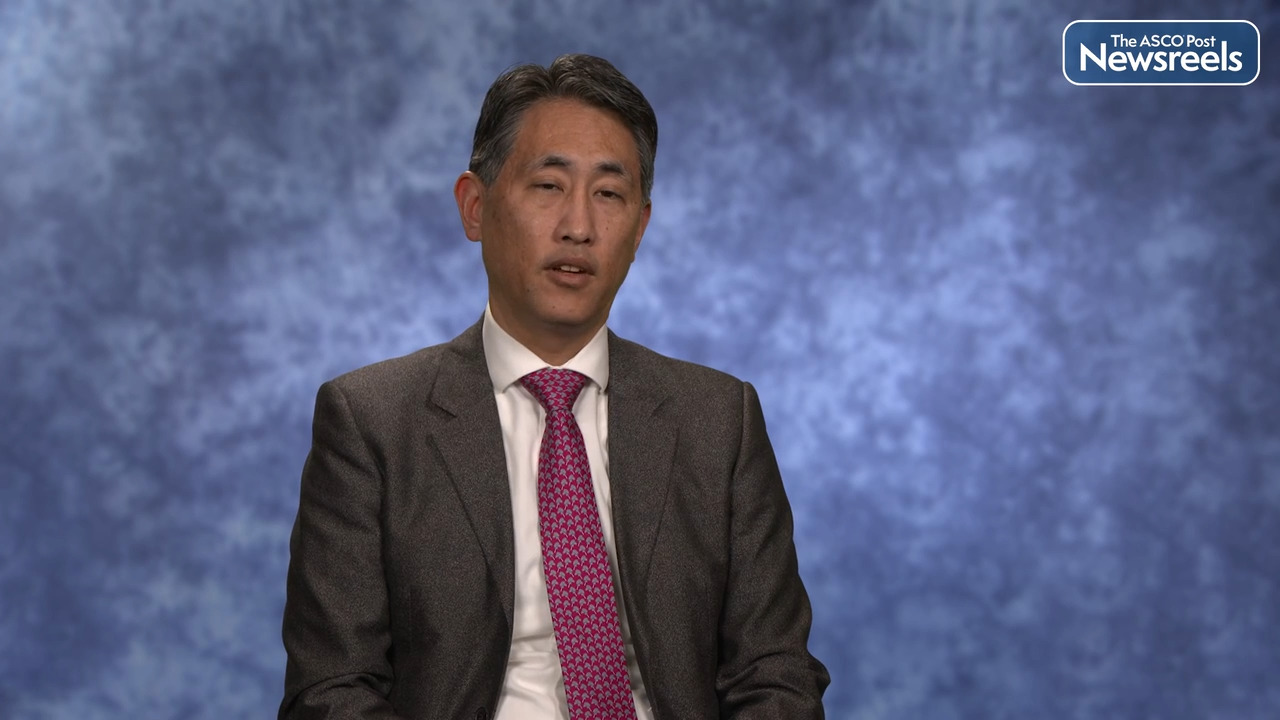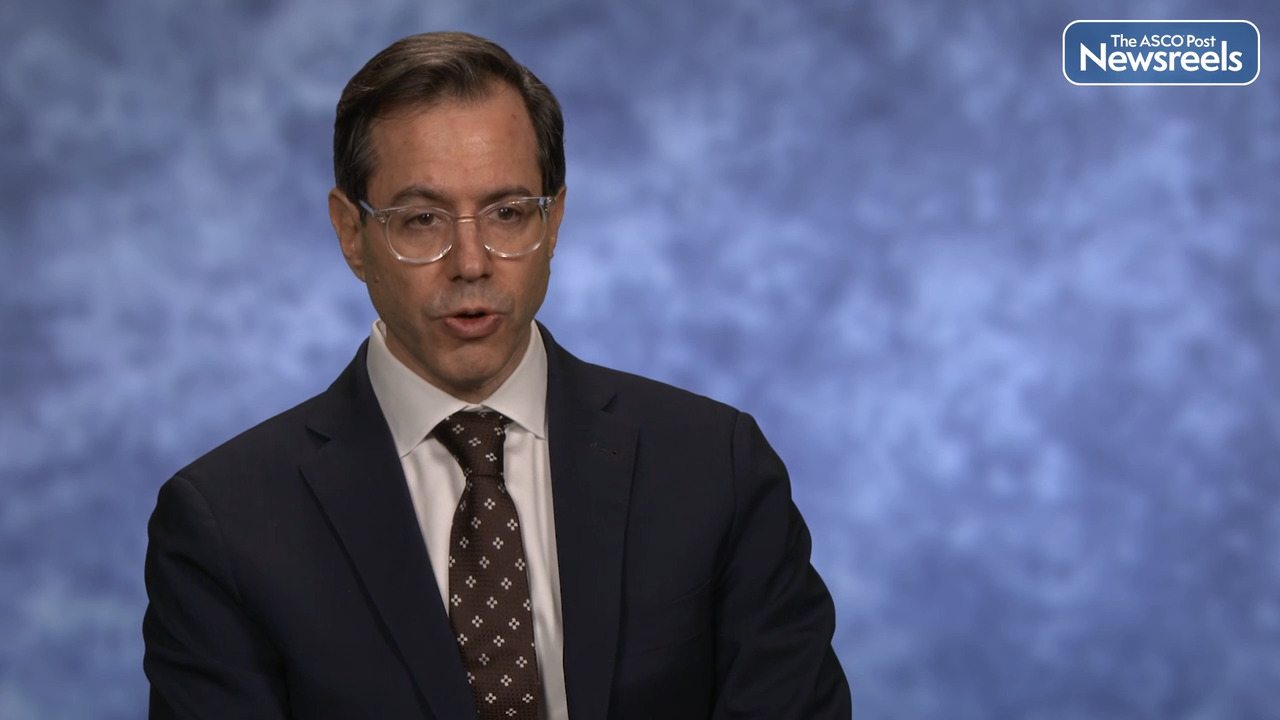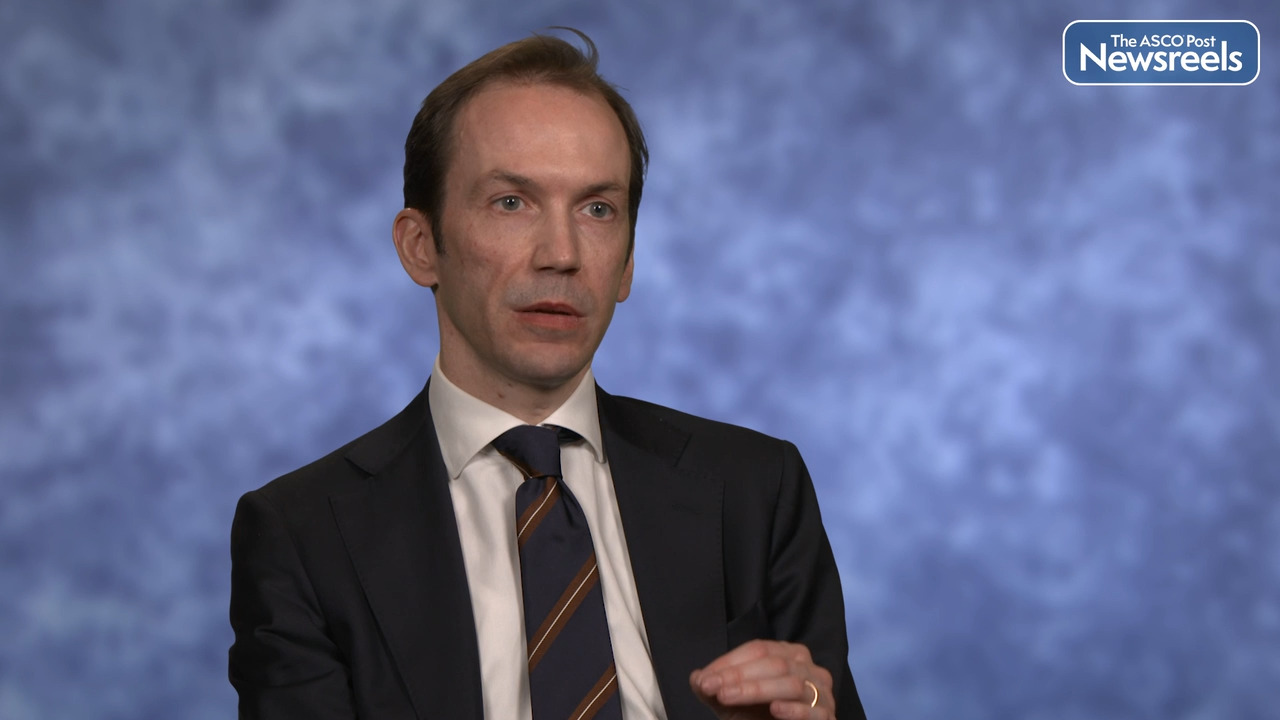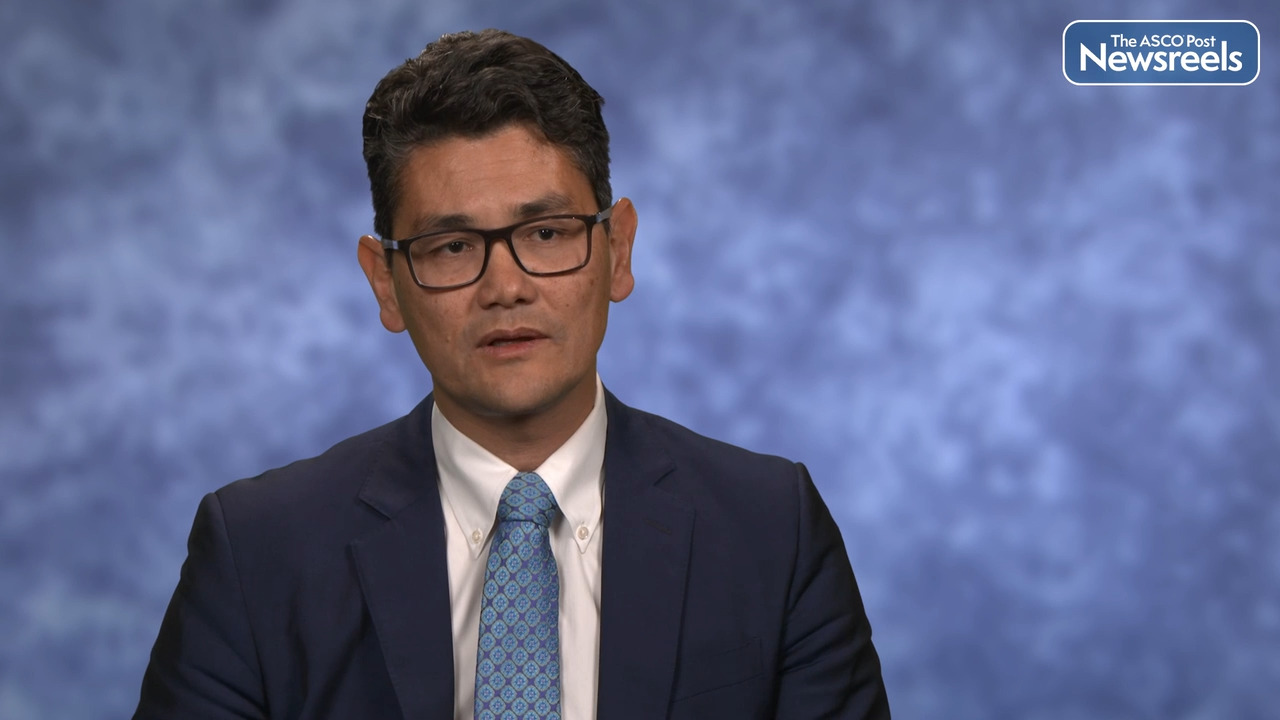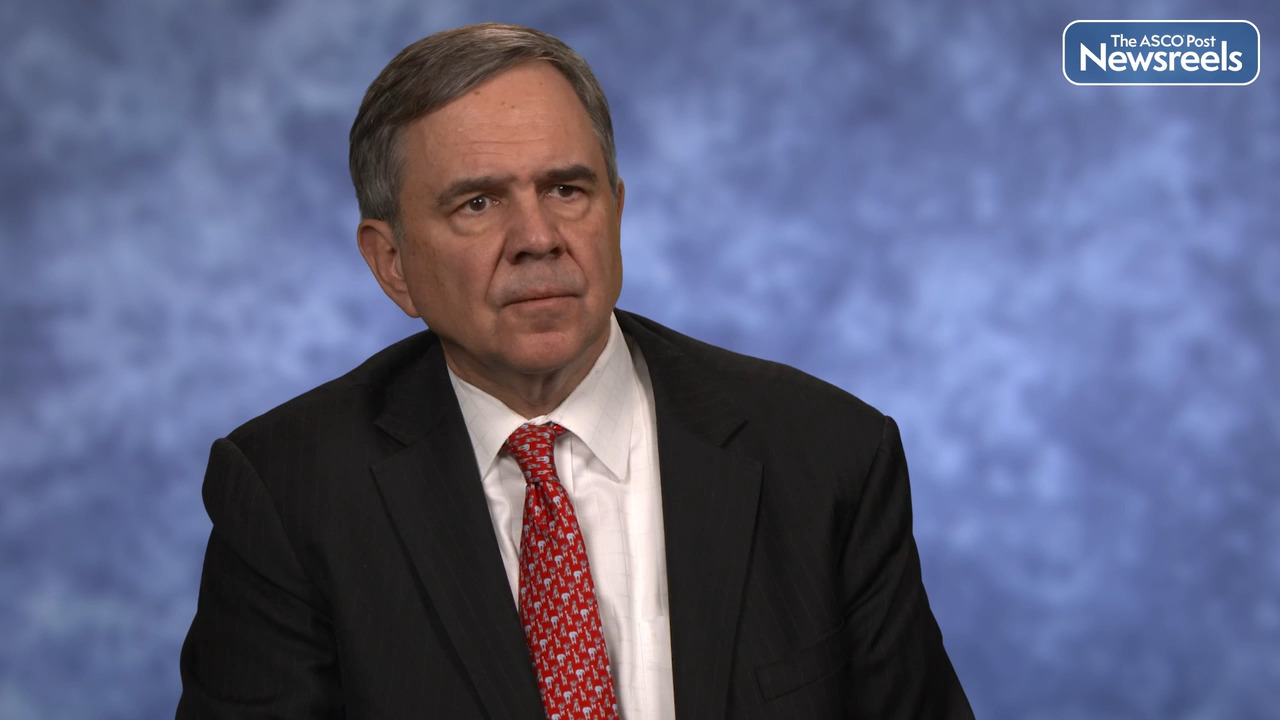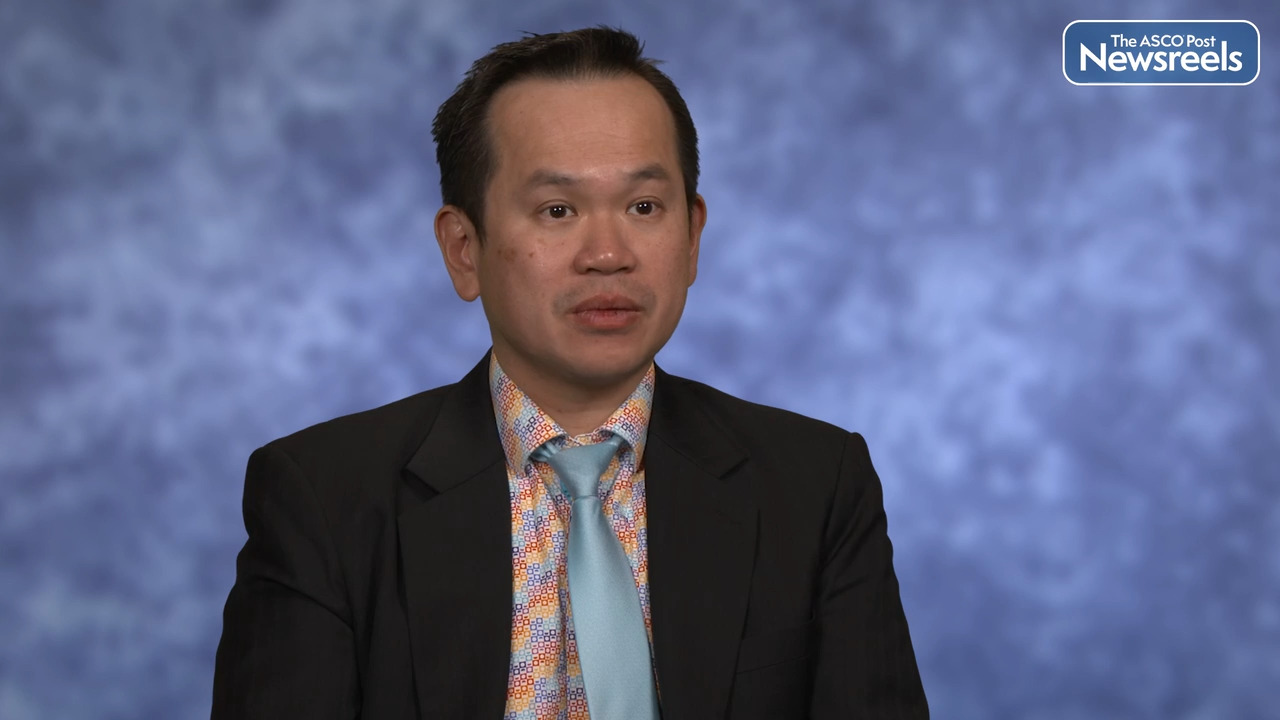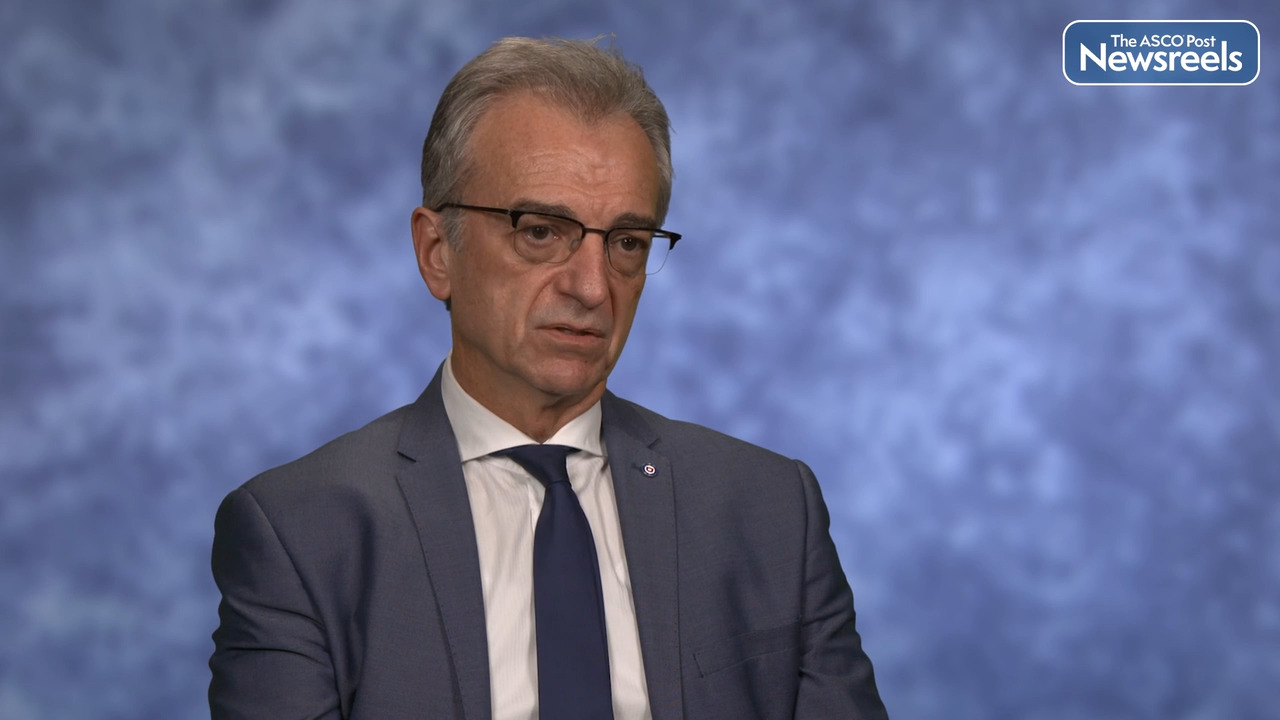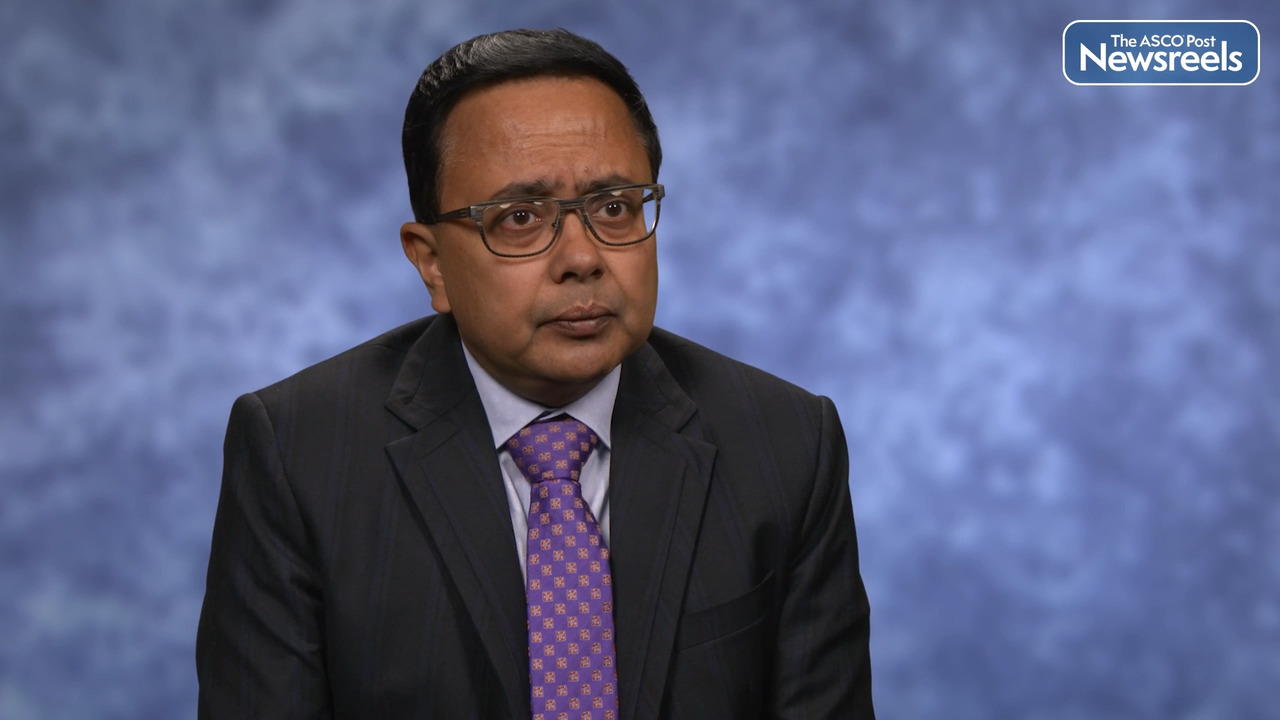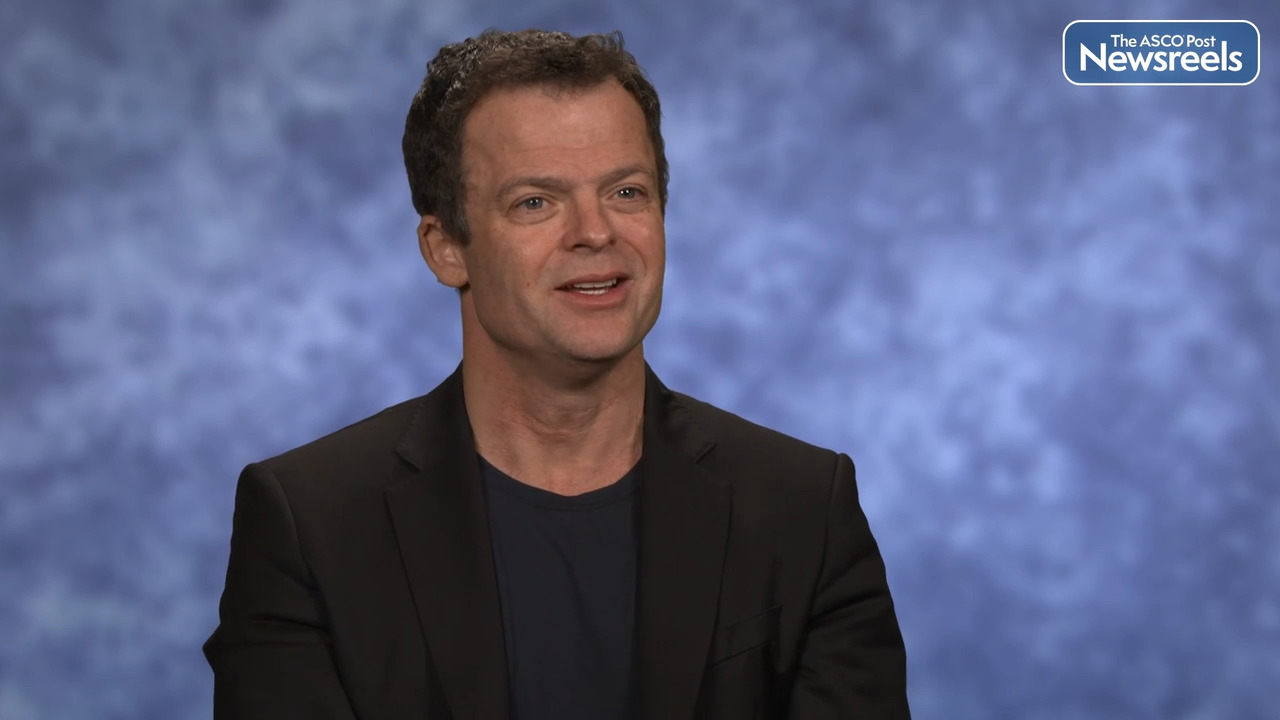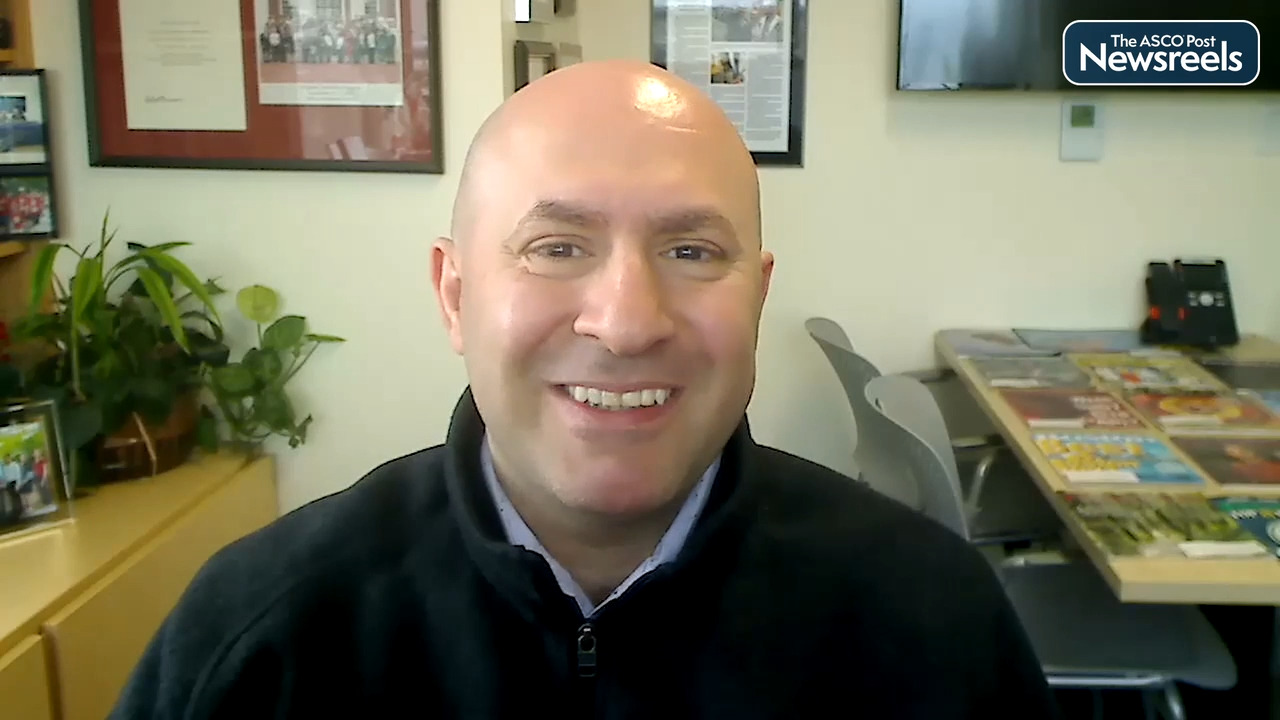2023 ASCO Genitourinary Cancers Symposium
Expert Point of View: Xin Gao, MD
Xin Gao, MD, Assistant Professor, Harvard Medical School, Genitourinary Cancers Program, Mass General Cancer Center, commented on the results from TROPHY-U-01 cohort 2. “These data add to the overall ...
Sacituzumab Govitecan-hziy Achieves Response After Disease Progression on Immune Checkpoint Inhibitor in Metastatic Urothelial Cancer
Treatment with the antibody-drug conjugate sacituzumab govitecan-hziy achieved an objective response rate of 32% in platinum-ineligible patients with metastatic urothelial cancer who experienced disea...
CheckMate 274: Continued Disease-Free Survival Benefits With Adjuvant Nivolumab in High-Risk Urothelial Carcinoma
With longer-term follow-up, adjuvant nivolumab continued to demonstrate improved disease-free survival, non–urothelial tract recurrence–free survival, and distant metastasis–free survival vs placebo i...
Darolutamide Plus Androgen-Deprivation Therapy and Docetaxel in Metastatic Hormone-Sensitive Prostate Cancer
The addition of the androgen receptor inhibitor darolutamide to androgen-deprivation therapy and docetaxel reduced the risk of death by 30% compared with androgen-deprivation therapy plus docetaxel in...
PROpel Trial: Improvement in Progression-Free Survival With First-Line Olaparib Plus Abiraterone in Metastatic Prostate Cancer
The addition of the PARP (poly [ADP-ribose] polymerase) inhibitor olaparib to standard-of-care abiraterone in the first-line setting of metastatic castration-resistant prostate cancer achieved longer ...
Extended Follow-up Supports First-Line Use of Nivolumab Plus Cabozantinib in Advanced Renal Cell Carcinoma
The 3-year follow-up of the phase III CheckMate 9ER trial demonstrates superior outcomes with the combination of nivolumab plus cabozantinib vs the former standard-of-care sunitinib as first-line trea...
Highlights of Novel Therapies Under Study in Genitourinary Cancers
Here are some brief reports from the 2023 ASCO Genitourinary (GU) Cancers Symposium that we hope are of interest. They include real-world evidence about the use of avelumab maintenance in metastatic u...
PROpel Trial: Improvement in Progression-Free Survival With First-Line Olaparib Plus Abiraterone in Metastatic Prostate Cancer
The addition of the PARP (poly [ADP-ribose] polymerase) inhibitor olaparib to standard-of-care abiraterone in the first-line setting of metastatic castration-resistant prostate cancer achieved longer ...
Expert Point of View: Xin Gao, MD
Xin Gao, MD, Assistant Professor, Harvard Medical School, Genitourinary Cancers Program, Mass General Cancer Center, commented on the results from TROPHY-U-01 cohort 2. “These data add to the overall ...
Sacituzumab Govitecan-hziy Achieves Response After Disease Progression on Immune Checkpoint Inhibitor in Metastatic Urothelial Cancer
Treatment with the antibody-drug conjugate sacituzumab govitecan-hziy achieved an objective response rate of 32% in platinum-ineligible patients with metastatic urothelial cancer who experienced disea...
Expert Point of View: Tyler Seibert, MD, PhD
Formal discussant of the FORMULA-509 trial, Tyler Seibert, MD, PhD, of the University of California San Diego, commented: “The important take-away of these results is who benefited from the intensific...
FORMULA-509: Intensified Postoperative Regimen May Be of Benefit in Subset of High-Risk Prostate Cancer
The addition of abiraterone acetate and apalutamide to standard of care gonadotropin-releasing hormone (GnRH) agonist for 6 months and radiation therapy failed to improve progression-free survival and...
Expert Point of View: Elena Castro, MD, PhD
The formal discussant of the TALAPRO-2 trial, Elena Castro, MD, PhD, took issue with the conclusion of Dr. Neeraj Agarwal and colleagues that these results support the use of talazoparib plus enzaluta...
TALAPRO-2: Talazoparib Plus Enzalutamide Extends Radiographic Progression–Free Survival in Metastatic Castration-Resistant Prostate Cancer
The addition of the poly (ADP ribose) polymerase (PARP) inhibitor talazoparib to the androgen receptor signaling inhibitor enzalutamide achieved a statistically significant and clinically meaningful i...
Darolutamide Plus Androgen-Deprivation Therapy and Docetaxel in Metastatic Hormone-Sensitive Prostate Cancer
The addition of the androgen receptor inhibitor darolutamide to androgen-deprivation therapy and docetaxel reduced the risk of death by 30% compared with androgen-deprivation therapy plus docetaxel in...
Extended Follow-up Supports First-Line Use of Nivolumab Plus Cabozantinib in Advanced Renal Cell Carcinoma
The 3-year follow-up of the phase III CheckMate 9ER trial demonstrates superior outcomes with the combination of nivolumab plus cabozantinib vs the former standard-of-care sunitinib as first-line trea...
TRITON3 Trial: Rucaparib Extends Progression-Free Survival in Selected Patients With Metastatic Castration-Resistant Prostate Cancer
The poly (ADP-ribose) polymerase (PARP) inhibitor rucaparib prolonged imaging-based progression-free survival vs physician’s choice of therapy in patients with metastatic castration-resistant prostate...
CheckMate 274: Continued Disease-Free Survival Benefits With Adjuvant Nivolumab in High-Risk Urothelial Carcinoma
With longer-term follow-up, adjuvant nivolumab continued to demonstrate improved disease-free survival, non–urothelial tract recurrence–free survival, and distant metastasis–free survival vs placebo i...
Vadim S. Koshkin, MD, and Tanya Jindal, BS, BA, on Urothelial Carcinoma: Biomarkers of Response to Enfortumab Vedotin-ejfv
Vadim S. Koshkin, MD, and Tanya Jindal, BS, BA, both of the University of California, San Francisco, Helen Diller Family Comprehensive Cancer Center, discuss results from the retrospective UNITE study...
Updates From City of Hope on Renal Cell, Prostate, and Urothelial Cancers
Sumanta K. Pal, MD, introduces his City of Hope colleagues, Hedyeh Ebrahimi, MD, MPH, who discusses the prevalence of dietary modification and supplement use in patients with metastatic renal cell car...
Laurence Albiges, MD, PhD, on Renal Cell Carcinoma: New Phase II Data on Cabozantinib and Checkpoint Inhibitor Therapy
Laurence Albiges, MD, PhD, of France’s Gustave Roussy Cancer Centre, discusses interim results from the CaboPoint study, which evaluated cabozantinib as second-line treatment in patients with unresect...
Daniel P. Petrylak, MD, on Urothelial Cancer: Phase II Trial Analysis of Sacituzumab Govitecan-hziy in Metastatic Disease
Daniel P. Petrylak, MD, of the Yale Cancer Center, discusses a primary phase II analysis of the TROPHY-U-01 study, cohort 2, which evaluated sacituzumab govitecan-hziy in platinum-ineligible patients ...
Michael B. Atkins, MD, on Renal Cell Carcinoma: Phase II Findings on Nivolumab and Ipilimumab
Michael B. Atkins, MD, of Georgetown Lombardi Comprehensive Cancer Center, discusses treatment-free survival outcomes from the HCRN GU16-260-Cohort A study of patients with previously untreated advanc...
Matt D. Galsky, MD, on Bladder or Upper Urinary Tract Cancer: Extended Follow-up Results From CheckMate 274
Matt D. Galsky, MD, of the Icahn School of Medicine at Mount Sinai and Tisch Cancer Institute, discusses results from CheckMate 274, which investigated nivolumab compared with placebo in patients with...
Scott T. Tagawa, MD, on Prostate Cancer: Phase II Results on Ketoconazole, Hydrocortisone, and an Anti-PSMA Antibody
Scott T. Tagawa, MD, of Weill Cornell Medicine, NewYork-Presbyterian Hospital, discusses study results showing that, the anti-PSMA (prostate-specific membrane antigen) monoclonal antibody J591 with ke...
Matt D. Galsky, MD, on Urothelial Carcinoma: New Study Results on Atezolizumab, Platinum, and Gemcitabine
Matt D. Galsky, MD, of the Icahn School of Medicine at Mount Sinai and Tisch Cancer Institute, discusses final overall survival data from the phase III IMvigor130 study, which compared atezolizumab ve...
Andrea Necchi, MD, on Bladder Cancer: Phase II Results With Pembrolizumab Monotherapy
Andrea Necchi, MD, of Italy’s Vita-Salute San Raffaele University and the IRCCS San Raffaele Hospital and Scientific Institute, discusses new data from the KEYNOTE-057 trial on a novel systemic therap...
Alan H. Bryce, MD, on Prostate Cancer: Phase III Results on Rucaparib, Docetaxel, and Androgen Pathway Inhibitor Therapy
Alan H. Bryce, MD, of the Mayo Clinic, discusses the final results of the primary endpoint of rPFS and interim results on overall survival among patients with chemotherapy-naive metastatic castration-...
Daniel P. Petrylak, MD, on Prostate Cancer: Latest Data on Pembrolizumab Plus Docetaxel
Daniel P. Petrylak, MD, of the Yale Cancer Center, discusses phase III findings from the KEYNOTE-921 study, which was designed to assess the combination of pembrolizumab and docetaxel in the treatment...
Paul L. Nguyen, MD, on Prostate Cancer: New Findings on Treatment With Salvage Radiotherapy, GnRH Agonist, Abiraterone, Prednisone, and Apalutamide
Paul L. Nguyen, MD, of Dana-Farber Cancer Institute and Harvard Medical School, discusses results from the FORMULA-509 study, which compared postoperative salvage radiotherapy and 6 months of GnRH ago...
Aristotelis Bamias, MD, on Urothelial Carcinoma: Final Overall Survival Analysis of Atezolizumab Monotherapy vs Chemotherapy
Aristotelis Bamias, MD, of the National and Kapodistrian University of Athens, discusses results from the phase III IMvigor130 study, which suggest that atezolizumab monotherapy continues to show bett...
Neeraj Agarwal, MD, on Prostate Cancer: New Data on Talazoparib and Enzalutamide
Neeraj Agarwal, MD, of the Huntsman Cancer Institute, University of Utah, discusses phase III results from the TALAPRO-2 study, which suggested an improvement in radiographic progression-free survival...
Thomas Powles, MD, PhD, on Renal Cell Carcinoma: Phase III Results on Cabozantinib, Nivolumab, and Ipilimumab
Thomas Powles, MD, PhD, of Barts Health NHS Trust, Queen Mary University of London, discusses new data from the COSMIC-313 study of patients with advanced renal cell carcinoma of IMDC (International M...
TRITON3: Rucaparib vs Physician’s Choice of Single-Agent Therapy in Metastatic Castration-Resistant Prostate Cancer With BRCA or ATM Alterations
As reported in The New England Journal of Medicine by Karim Fizazi, MD, PhD, and colleagues, the phase III TRITON3 trial has shown significantly improved progression-free survival with rucaparib vs ph...
Toni K. Choueiri, MD, on Renal Cell Carcinoma: Potential Predictive Biomarkers of Treatment Efficacy
Toni K. Choueiri, MD, of Dana-Farber Cancer Institute, discusses a biomarker analysis from the phase III CheckMate 9ER trial of nivolumab plus cabozantinib vs sunitinib for the treatment of patients w...
Adding Talazoparib to Enzalutamide Extends Progression-Free Survival in Metastatic Castration-Resistant Prostate Cancer
The addition of the poly (ADP-ribose) polymerase (PARP) inhibitor talazoparib to the androgen receptor signaling inhibitor enzalutamide resulted in a statistically significant and clinically meaningfu...
Nivolumab After Surgical Resection Improves Disease-Free Survival for Patients With High-Risk Muscle-Invasive Urothelial Carcinoma
Adjuvant therapy with the immune checkpoint inhibitor nivolumab following surgery improved disease-free survival in patients with high-risk muscle-invasive urothelial carcinoma, according to new findi...
Single-Arm Phase II Noninferiority Trial Evaluates Active Surveillance vs Cystectomy Following Neoadjuvant Chemotherapy for Muscle-Invasive Urothelial Carcinoma
Researchers have found that following chemotherapy, 46% of patients with muscle-invasive urothelial carcinoma were able to avoid a cystectomy and achieve a 2-year metastasis-free survival, according t...
Intensified Drug Regimen Added to Standard of Care Improves Outcomes in Subset of Patients With High-Risk Prostate Cancer
In the phase III FORMULA-509 trial, the addition of abiraterone acetate/prednisone and apalutamide—compared with bicalutamide—to salvage radiation therapy plus 6 months of treatment with a gonadotropi...
TALAPRO-2: Talazoparib Plus Enzalutamide Improves Progression-Free Survival in Metastatic Castration-Resistant Prostate Cancer
The TALAPRO-2 phase III clinical trial found that combining the poly (ADP-ribose) polymerase (PARP) inhibitor talazoparib with the androgen receptor inhibitor enzalutamide resulted in significantly be...
Is a Diet Higher in Plant-Based Foods Associated With a Lower Risk of Prostate Cancer Progression and Recurrence?
Patients with prostate cancer who reported the highest amounts of plant-based foods in their diets had a 52% lower risk of disease progression and a 53% lower risk of recurrence compared with those wh...
